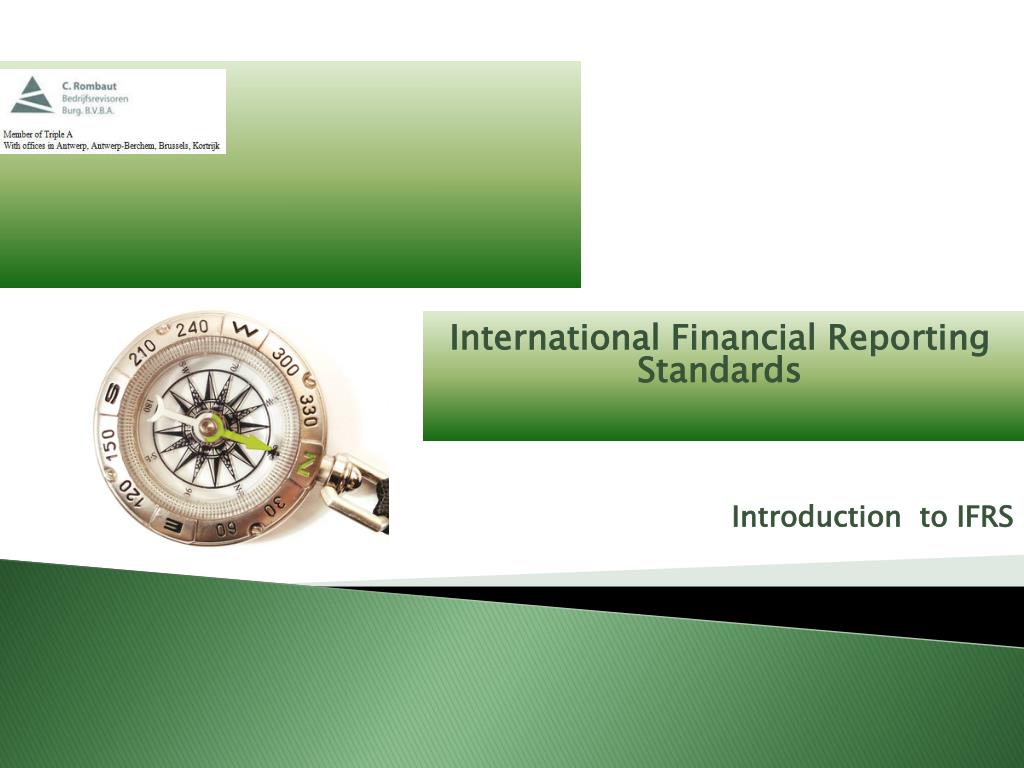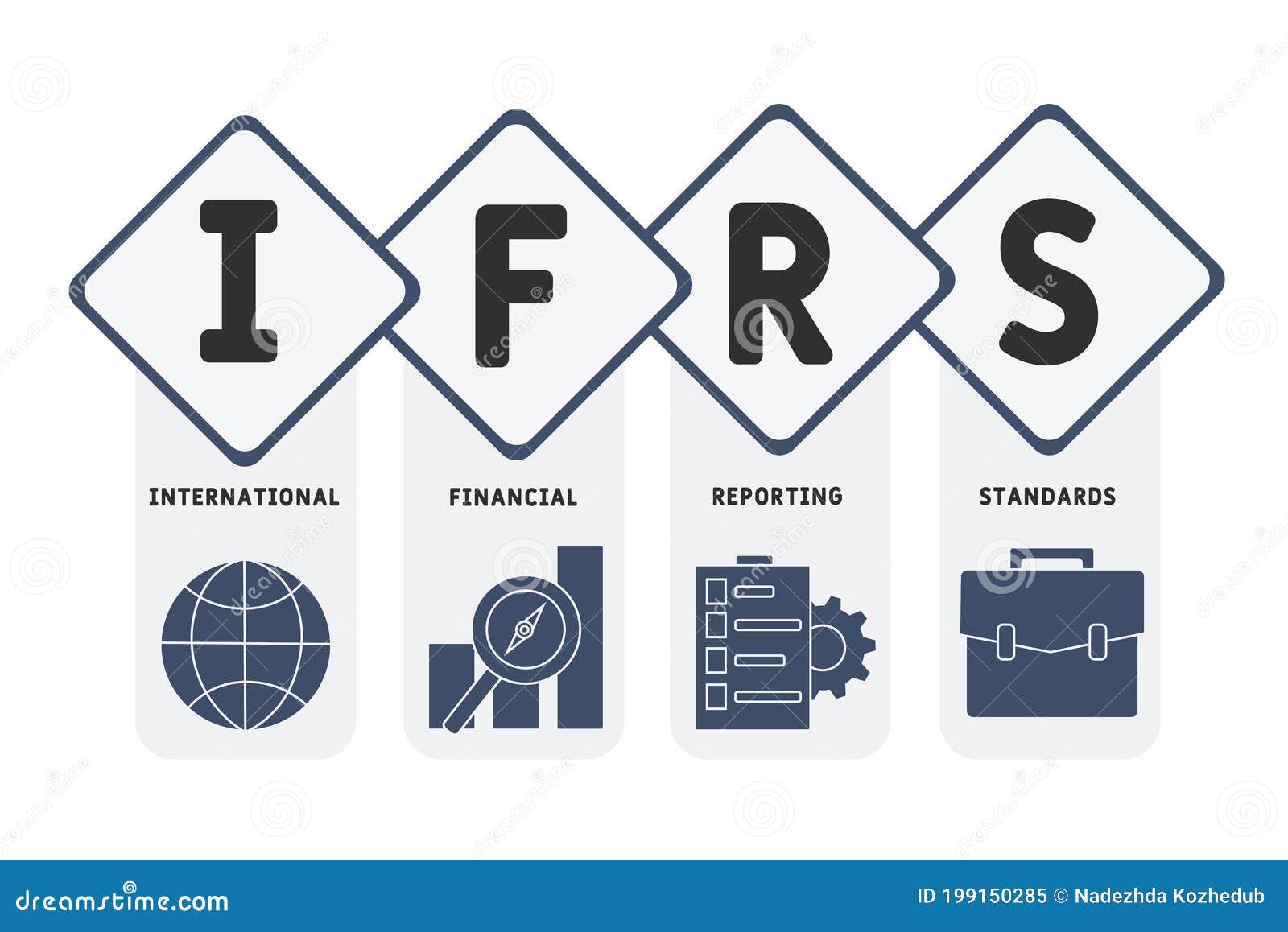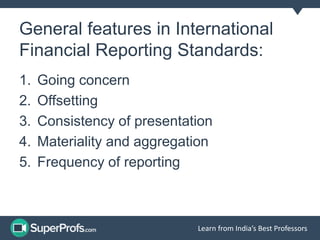International financial reporting is a crucial aspect of the global economy, as it provides a standardized format for companies to report their financial information to stakeholders. It is a set of rules and guidelines that govern how companies should prepare and present their financial statements, ensuring transparency and comparability across borders. The International Financial Reporting Standards (IFRS) are the most widely recognized framework for international financial reporting, used by over 100 countries around the world. In this article, we will delve into the details of international financial reporting, its importance, and its impact on the global economy.
DANH MỤC BÀI VIẾT
- 1 1. History and Evolution of International Financial Reporting
- 2 2. Key Principles of International Financial Reporting
- 3 3. Impact of International Financial Reporting on Businesses
- 4 4. Common Misconceptions about International Financial Reporting
- 5 5. FAQs about International Financial Reporting
- 6 Conclusion
1. History and Evolution of International Financial Reporting

Early Stages of International Financial Reporting
The need for a global standard for financial reporting arose due to the growing interconnectedness of economies and companies across borders. In the early 20th century, various countries had their own accounting standards, making it difficult for investors and analysts to compare financial information from different countries. As a result, organizations such as the International Accounting Standards Committee (IASC) were formed to develop a uniform set of standards that could be accepted globally.
The Creation of IFRS
In 2001, the IASC was replaced by the International Accounting Standards Board (IASB), which is responsible for developing and issuing IFRS. The IASB works closely with national standard-setting bodies and takes into account the needs and concerns of different jurisdictions while developing new standards. The first version of IFRS was issued in 2005, and since then, it has been regularly updated and revised to keep up with the changing global business landscape.
Adoption of IFRS Around the World
Today, the majority of countries have either adopted or converged their accounting standards with IFRS. Some countries, such as Australia and South Africa, have fully adopted IFRS, while others, like the United States and Japan, have converged their accounting standards with IFRS. This widespread adoption of IFRS has helped to promote consistency and comparability in financial reporting globally.
2. Key Principles of International Financial Reporting

Fair Presentation and Compliance with Standards
The fundamental principle of international financial reporting is that financial statements must present a true and fair view of the company’s financial position, performance, and cash flows. This means that financial statements should be free from material misstatement and comply with all relevant accounting standards and regulations.
Accrual Basis Accounting
Under IFRS, companies are required to use the accrual basis of accounting, which recognizes revenues and expenses when they are earned or incurred, rather than when cash is received or paid. This method provides a more accurate representation of a company’s financial performance and position, as it takes into account all economic events, whether or not cash has been exchanged.
Consistency
To ensure comparability over time, IFRS requires companies to apply the same accounting policies and methods consistently from one period to another unless there is a valid reason for change. This allows stakeholders to track a company’s performance and financial position accurately and make meaningful comparisons between different periods.
3. Impact of International Financial Reporting on Businesses

Increased Global Investment Opportunities
The adoption of IFRS has had a significant impact on global investment opportunities. With a consistent set of standards, investors can make better-informed decisions about where to allocate their capital, without having to navigate through country-specific accounting rules and regulations. This has resulted in increased foreign investment and cross-border capital flows, contributing to economic growth and development.
Improved Transparency and Comparability
One of the main benefits of IFRS is the increased transparency and comparability of financial information across borders. Companies that report under IFRS provide a standardized set of financial statements that can be easily compared with those of other companies, leading to a better understanding of their financial performance and position. This also helps to reduce information asymmetry between companies and their stakeholders, promoting trust and confidence in the financial markets.
Reduced Cost of Capital
The adoption of IFRS has also had a positive impact on the cost of capital for companies. With more transparent and comparable financial information, investors can make better-informed investment decisions, resulting in lower risk premiums for companies and ultimately reducing their cost of capital. This allows companies to raise funds at a lower cost, providing them with more resources to invest in their growth and development.
4. Common Misconceptions about International Financial Reporting

IFRS is Only for Large Companies
One common misconception about IFRS is that it is only applicable to large, multinational companies. In reality, IFRS is designed for all types and sizes of companies, including small and medium-sized enterprises (SMEs). There are simplified versions of IFRS specifically tailored for SMEs, making it easier for them to adopt the international standards.
IFRS is Too Complex and Difficult to Implement
Another misconception is that IFRS is overly complex and difficult to implement. While the standards may appear complex at first, they are based on sound accounting principles and are designed to provide relevant and reliable information to users. With proper training and guidance, companies can successfully implement IFRS, and many have reported improved efficiency and transparency as a result.
Adopting IFRS is Costly and Time-Consuming
Some companies are hesitant to adopt IFRS due to the perceived costs and time involved in implementing new accounting standards. However, in the long run, the benefits of adopting IFRS far outweigh the initial costs. Additionally, with the convergence of accounting standards around the world, the process of transitioning to IFRS has become less time-consuming and costly.
5. FAQs about International Financial Reporting

What is the difference between IFRS and US GAAP?
IFRS and US Generally Accepted Accounting Principles (GAAP) are two sets of accounting standards used in different parts of the world. While they share many similarities, there are some key differences between the two, such as the treatment of certain revenue recognition and inventory valuation methods.
Are there any countries that do not use IFRS?
While the majority of countries have adopted or converged their accounting standards with IFRS, some countries still use their own national standards. For example, China uses its own standards, known as Chinese Accounting Standards (CAS), which are based on IFRS but have some key differences.
How often are IFRS standards updated?
IFRS standards are regularly updated and revised by the IASB to keep up with changes in the global business landscape. New standards are usually issued every year or every other year, and companies are required to adopt them within a specified timeframe.
Do all companies need to use IFRS?
Not all companies are required to use IFRS. However, if a company operates in a jurisdiction where IFRS is mandatory or has securities listed on an exchange that requires IFRS, they must comply with the international standards.
What is the future of international financial reporting?
The future of international financial reporting is likely to involve further convergence of accounting standards, making it easier for companies to operate globally. There is also a growing focus on sustainability reporting, and we may see more integration of environmental, social, and governance (ESG) factors into financial reporting in the future.
Conclusion
International financial reporting plays a crucial role in promoting transparency and comparability in the global economy. With the widespread adoption of IFRS, companies can provide standardized and reliable financial information, leading to increased investor confidence and improved access to global capital markets. While there may be challenges in implementing IFRS, the benefits far outweigh the costs, making it a critical aspect of the global business landscape.




















